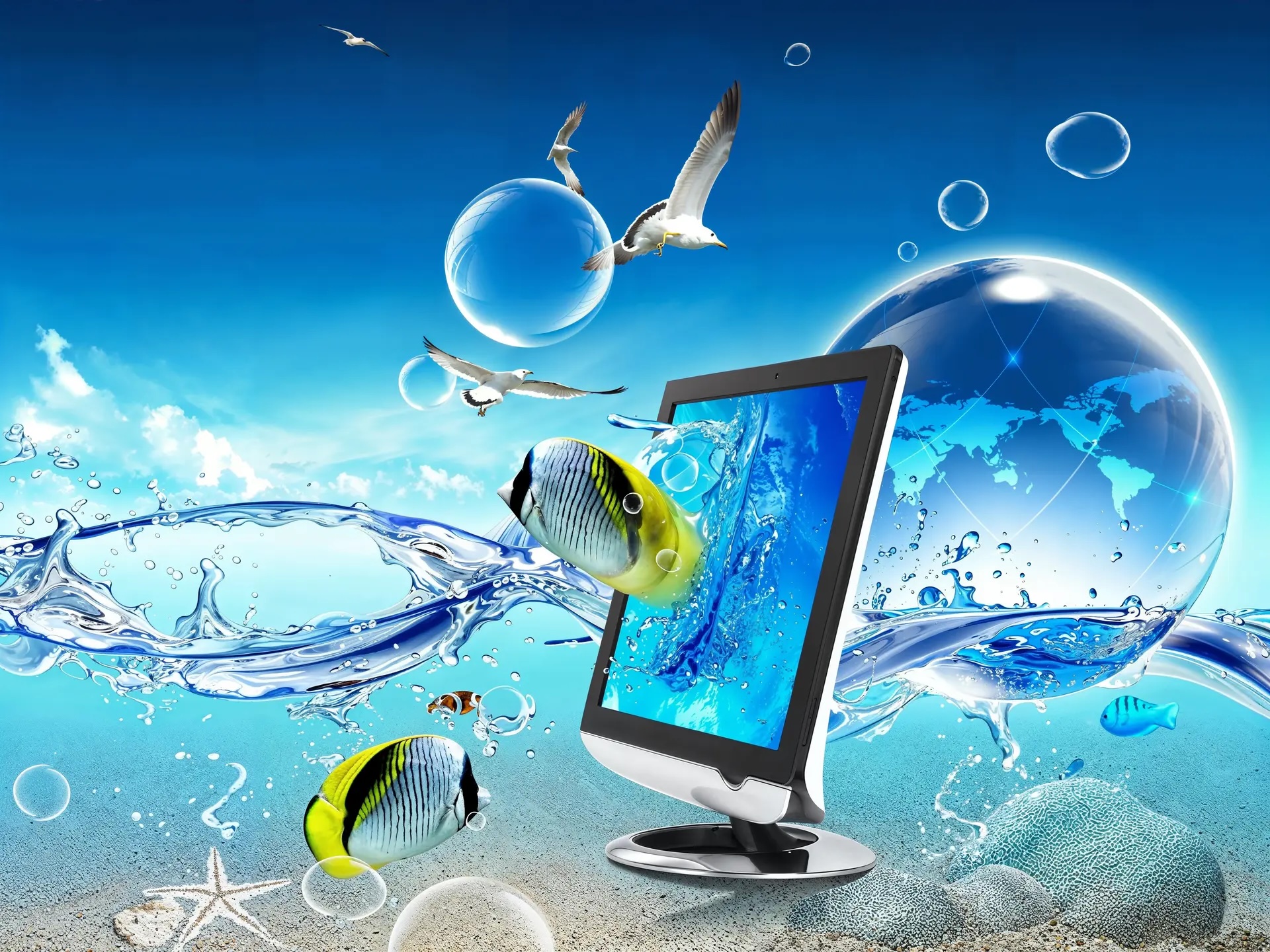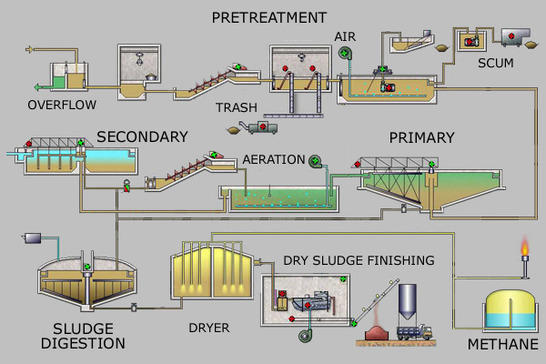why it's important we try recycling water
I think it’s always good to take a step back and contemplate what I am doing. I’m starting this blog with a short, personal, probably incomplete list of the reasons why I am doing my job!
At WOTA, we try to make machines that turn your dirty water into a liquid you can use again and again. The reasons to do that can be adressed and you may find more on the official website. I will simply discuss some random aspects of water recycling I find interesting!!
Water looks cool, like Windows Vista (frutiger-aero.org)
a lot of clean water is wasted in the drain
Starting with the obvious. You take a shower at the end of the day, let’s assume a significant amount of pollution on your body (yes, the outside world is not so clean). Initially, the water going down the drain will be somewhat dirty and can be rightfully considered wastewater, but then, the remaining time spent under hot waters thinking about human nature or the origins of the universe, I can guarantee this water is almost as clean as new! And depending on how long you’ve been meditating, this volume can be several dozens of liters.
After that, chances are your non-wastewater wasted water will then go down the building’s pipes, the city’s sewerage system to end up in a large-scale wastewater treatment plant where most impurities will be removed. Then back to the river!
Agreed, most of this waste can be avoided by individual actions and being mindful to avoid waste. But this doesn’t change my view: your wastewater may still be 95% pure in most cases, it could be perfect to clean your floor or your car, or water your plants. But our traditional water system treats this resource as a highly concentrated, corrupt effluent.
huge, vulnerable networks (part 1)
In most cases, you need two water networks, the tap water network will bring you drinkable and pure water, usually coming from a purification plant that took its source upstream of your local river, and a wastewater network that collects the effluents, treats them to an acceptable state of quality (this will depends on your local regulations) and puts it back downstream the same river.
Now I am not saying this is a bad system. It works super well in most places, a superb public service that magically brings you unlimited and pure water to your tap. It solved so many health issues and made modern cities actually livable. And, most beautifully, your water bill it only a small fraction of the cost!
Complex processes happening in a treatment plant (Freie Universität Berlin)
But in reality, this thing is expensive. The initial investments to build the network are huge, you have to constantly maintain it to avoid leaks and contaminations, then every 50 years or so you have to renew every inch of it. It will not discuss the details of water finances, but it is well-known that in many developed countries, including France1 and Japan2 there are increasing challenges regarding the financing of water infrastructure maintenance and renewal. Also, hundreds of kilometers of concrete pipes may be qualified an environmental challenge. Locally recycling water removes that!
huge, vulnerable networks (part 2)
The problem gets even deeper when you consider the possibility of natural disasters. Earthquakes simply destroy the networks, especially when they cause liquefaction and landslides, and here you are without water for months3 or years. In countryside areas, the length and branches of the network become significantly larger compared with the density of users, meaning exploding costs. There is a wide literature on infrastructure network vulnerability, but one thing we can confidently say is that, the more spread out the network it, the more vulnerable it will be to a random failure point.
human want control of need
For many things that we need, especially food we like it 自産自消 jisanjishō - local production for local consumption! It has many benefits: can be cheap, eco-friendly, contributes to local economy, more robust to global perturbations, more suited to local needs. Trying to apply this principle to water as well can bring more resilience to crisis, more control over your water: maybe your source water is different than on the other side of the country, so you want it recycled differently!
An ideal water recycling system would not require high-tech, rare earths, devices you cannot find easily locally. We may not be there yet, but same goes for your car, fridge, roof solar panels. It’s an open problem!
it is interesting to think about water
In general, it is just interesting to learn about these topics, realize how dependent we are from lifeline networks such as water, and feed how we could not survive more than a few days without it. Thinking about how to provide water to humans is linked to the organization of society at its deepest level.
Then, there are so many technical challenges in building and controlling a system that will reliably recycle water by itself, that it is an endless reserve of headaches and fun problems so that I can never get bored which is nice.
space travel
Last, I think we want good water recycling so that we can travel in space.
I don’t know if human societies will one day fix climate issues (we are doing quite poorly in the infamous planetary limits) or solve wars and take everyone out of poverty, but when we do we may want to go and explore the universe, make aliens our friends. Interstellar travel will require to travel for decades and centuries in the vacuum of space, so developing efficient sustainable, regenerative ecosystems will be a must, and this will involve recycling H20! I like sci-fi and thinking about distant future technologies, because it’s magic with a small hope we get there one day.
playlist
Thank you for reading this rant. I will try to make the next entry less serious. Let me close with some music of the moment.
- Supertramp - Take the Long Way Home
- Porcupine Tree - Pure Narcotic
- 馬の骨 (Uma No Hone) - 最低速度を守れ!
- Rush - Natural Science
“With regard to investments in wastewater services, the annual investment deficit is estimated at €1.4 billion for the maintenance of 326,000 km of sewer lines, 20 million connections and 22,331 wastewater treatment plants.” French senate information report, 2023 ↩︎
WOTA, financial challenges with water infrastructure in Japan ↩︎
Same for electric network, actually. ↩︎
Add this blog to your RSS reader.

